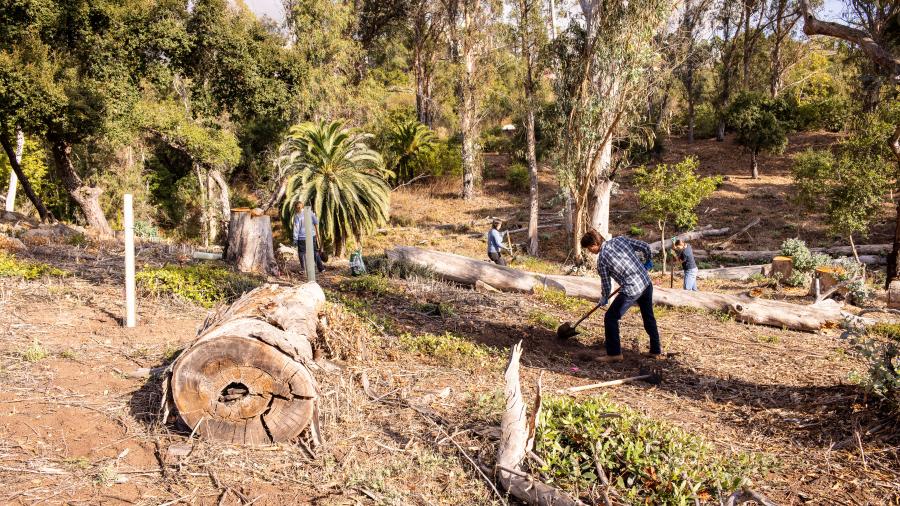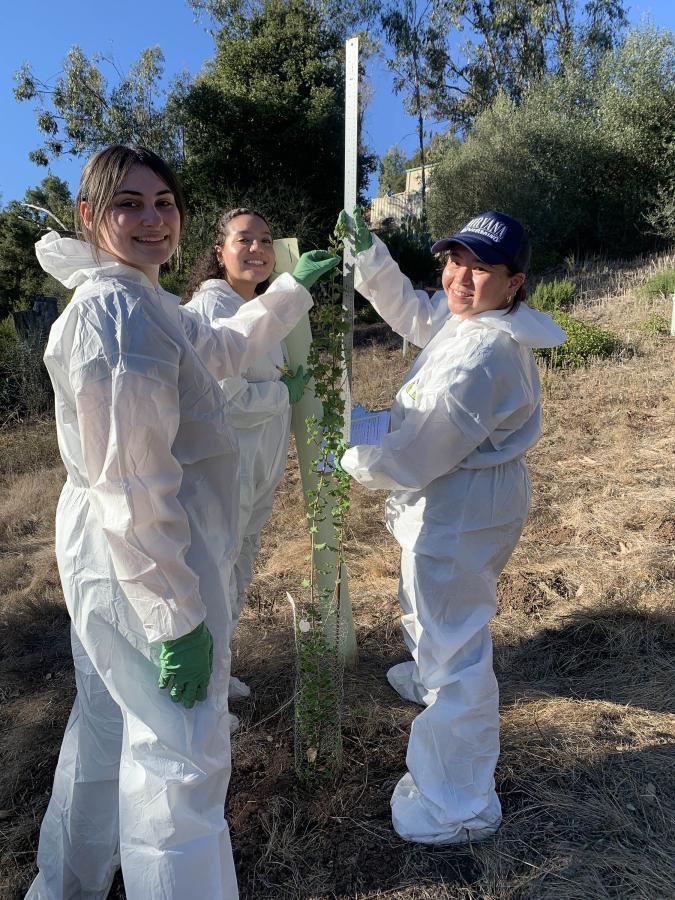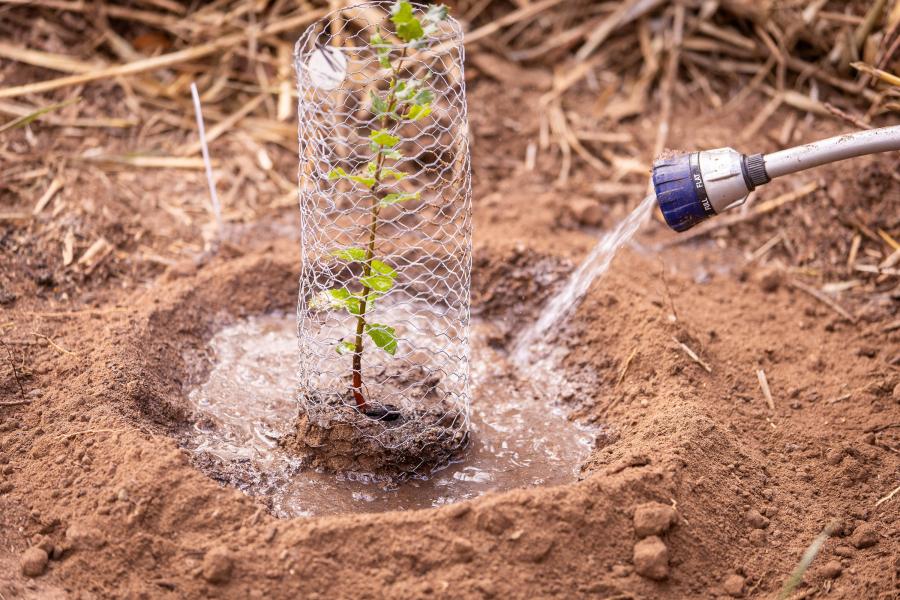Westmont News
Growing Oaks Offer Wildfire Resilience

By
Scott Craig
A Westmont biology class is celebrating the growing success of an oak woodland restoration project in the barranca along the westside of Westmont’s campus. Nearly all of the 60 coast live oaks that were planted along the dry Westmont Creek in November 2023 are surviving and many have grown more than three feet tall.

Students in the Plant Classification and Biodiversity Class conducted a thorough tree monitoring session, measuring tree height, crown diameter and overall health.
“As we continue our work, we’re planning to plant even more coast live oaks across the creek this semester, expanding our canopy of native trees,” says Laura Drake Schultheis, assistant professor of biology. “These majestic trees are not only beautiful additions to our landscape, but also act as vital fire buffers, helping protect our campus and community.”
Schultheis and Janell Balmaceda, sustainability coordinator and garden manager, manage the project, which received a substantial grant from the Regional Wildfire Mitigation Program (RWMP) Landscape Domain.
The project began in summer 2023 when the Montecito Fire Protection District removed many dead and dying eucalyptus trees in the region, providing an opportunity to improve the ecosystem while increasing wildfire resilience in the interface between wildland and urban areas.
In the 2008 Tea Fire, the eucalyptus canopies burned up like kindling, exploding and throwing embers to move along the creek corridor and enter the Las Barrancas community, destroying 14 homes.

“Anytime you can plant one of the oaks, it represents another potential stop to the spreading fire,” Schultheis says. “Additionally, adult oak trees will start dropping acorns, and we can get more oaks sprouting up and filling in the gaps. It helps create microhabitats, shady areas where more biodiversity can come in and inhabit the area and start returning it toward a native oak woodland.
“When you bring in plant communities, the insects come, the pollinators come, the herbivores come, and the study of ecology enables us to explore these connections.”